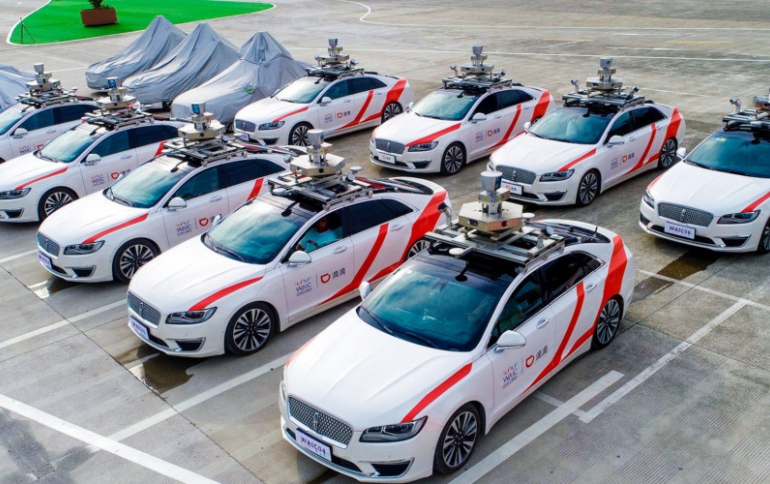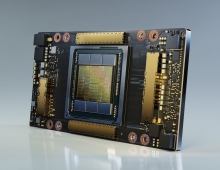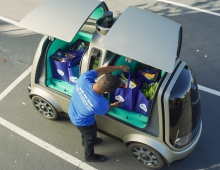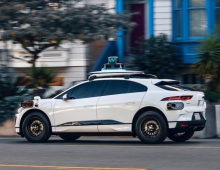
DiDi Launches Robo-Taxi Hailing, Plans to Launch Pilot Service for Public in Shanghai
Didi Chuxing accelerates its robo-taxi project, with a service that will allow passengers to hail self-driving vehicles from its app in a pilot robo-taxi service in Shanghai.
Cheng Wei, Founder and CEO of Didi Chuxing, made the announcement at Shanghai’s World Artificial Intelligence Conference, where DiDi is showcasing robo-taxi hailing with its autonomous driving fleet on a closed track.
“Technology only has worth when it brings value to people’s lives. We believe giving ordinary citizens access to large-scale, shared autonomous fleets is key to achieving our shared goal of safety, efficiency and sustainability for future cities,” said Cheng.
Zhang Bo, CTO of DiDi and CEO of DiDi’s autonomous driving company, identified technology, transportation data, and platform management expertise as the key strengths of DiDi’s autonomous driving program. “Working with our auto-industry partners, DiDi has the potential to become the first business to realize large-scale robo-taxi service in China,” Zhang said.
Shanghai government allowed DiDi to test its AV fleet. Zhang announced that DiDi will deploy 30 different models of L4 autonomous vehicles to provide pilot robo-taxi services in Jiading District of Shanghai. Given the complex traffic and road conditions in the megacity, DiDi will begin the program with a mixed dispatching model, which will combine both autonomous vehicles and human-driving vehicles for the duration of the pilot robo-taxi project.
Created in 2016, DiDi’s autonomous driving team now has over 200 specialists leading R&D operations covering research areas including HD mapping, perception, behavior prediction, planning and control, infrastructure and simulation, labeling, problem diagnosis, vehicle modifications, connected car, and security, among others. The team is developing and testing autonomous driving vehicles in both China and the United States.
DiDi upgraded its autonomous driving unit to become an independent company in August 2019.
Tech giants such as China’s Baidu Inc and Alphabet Inc’s Waymo as well as traditional carmakers have been racing to put full commercial self-driving vehicles on the road. However, some have stumbled due to the difficulty and expense of developing self-driving cars capable of anticipating and responding to humans in urban areas.
In December, Waymo began charging passengers to use its driverless vehicles in a roughly 160 km zone in four U.S. suburbs, putting it ahead of U.S. rivals.





















